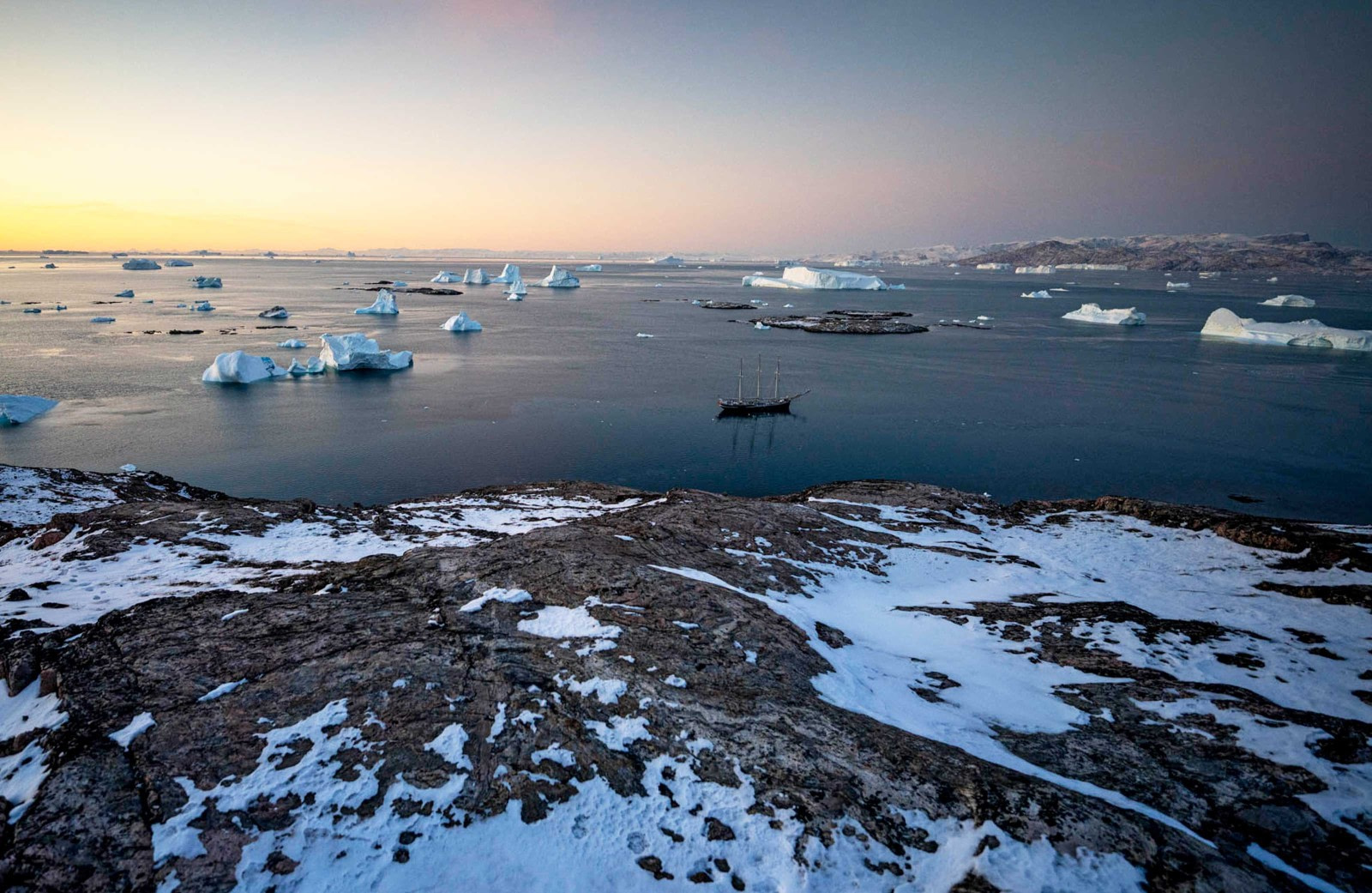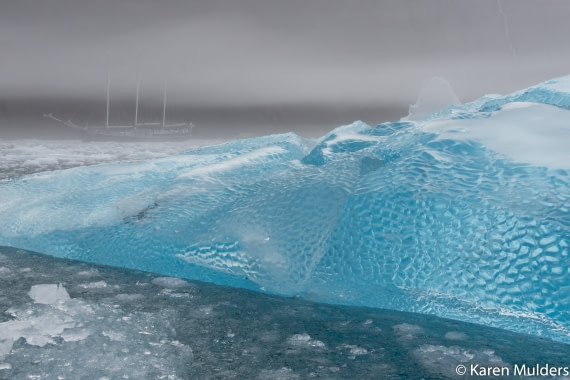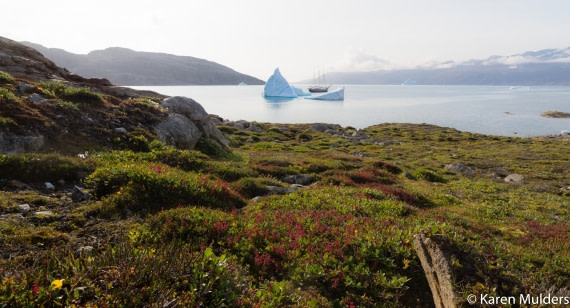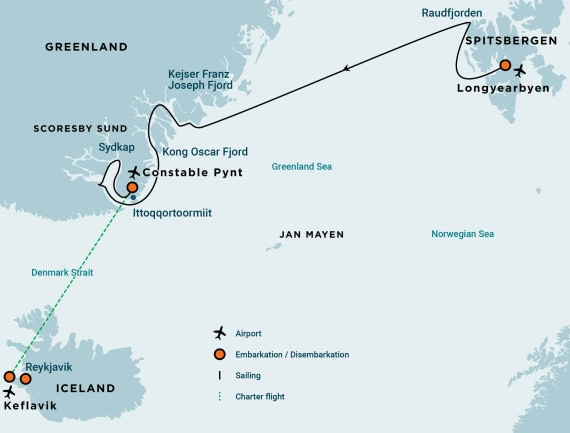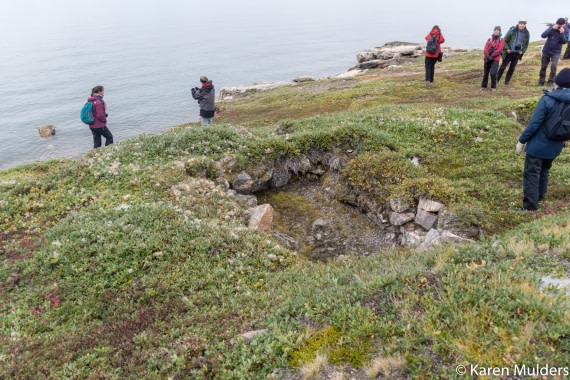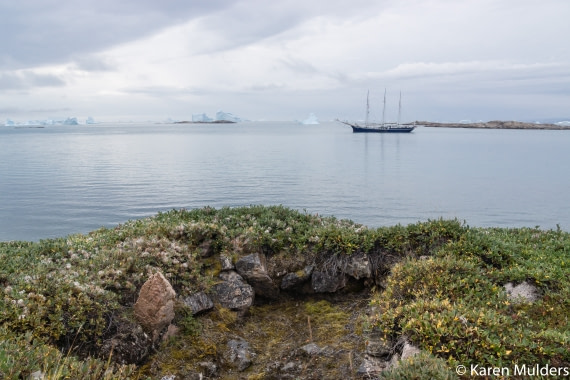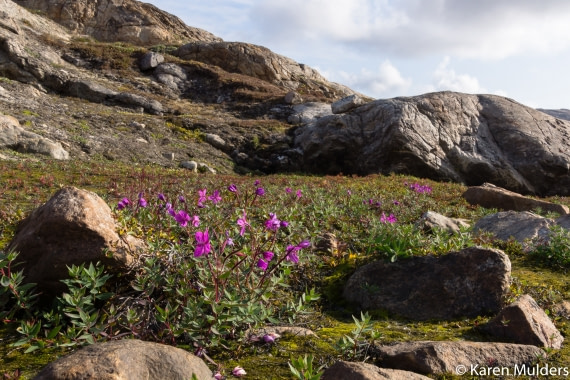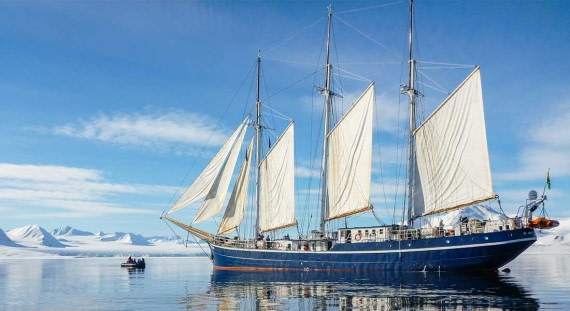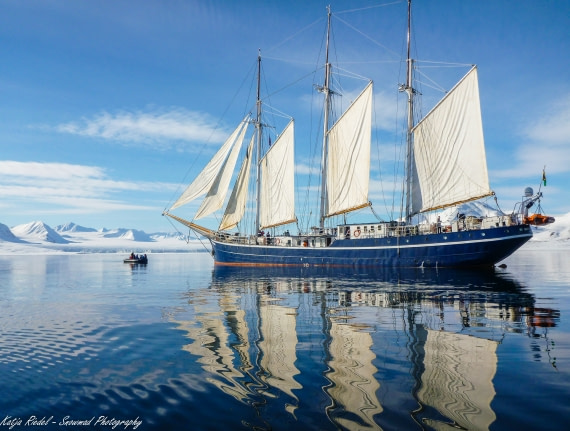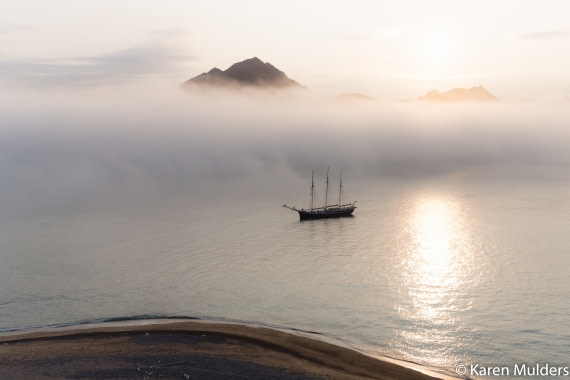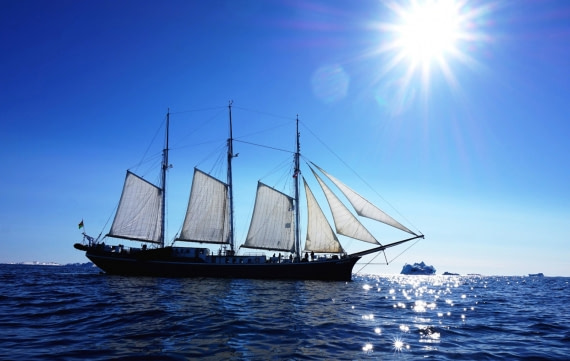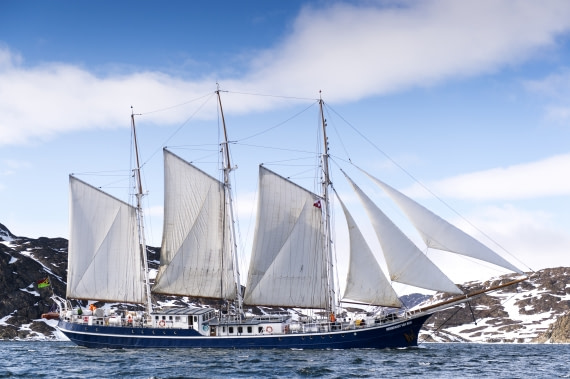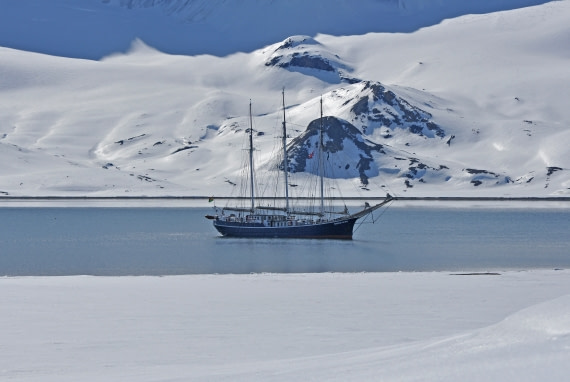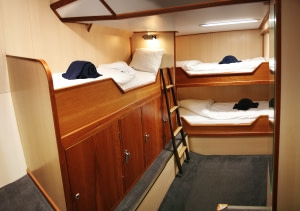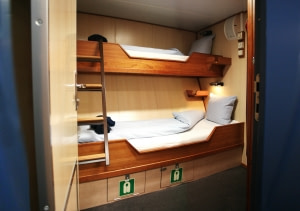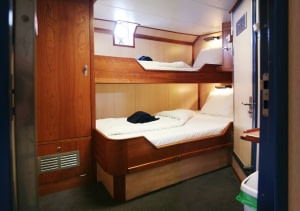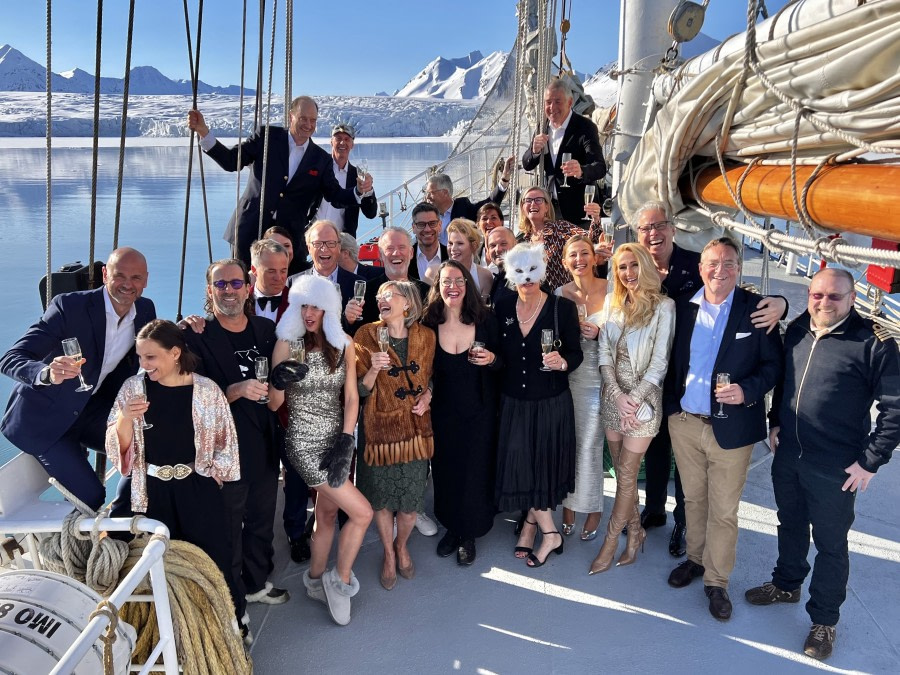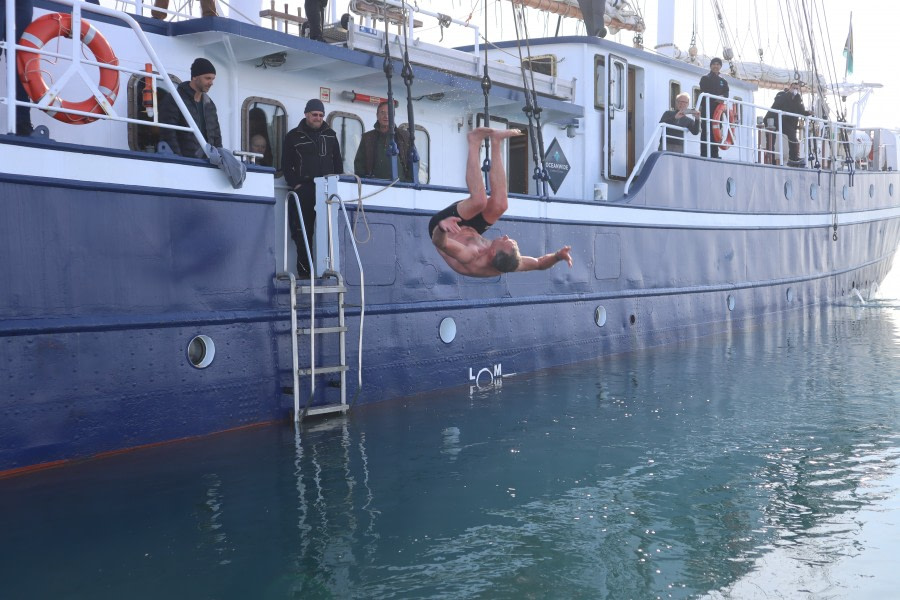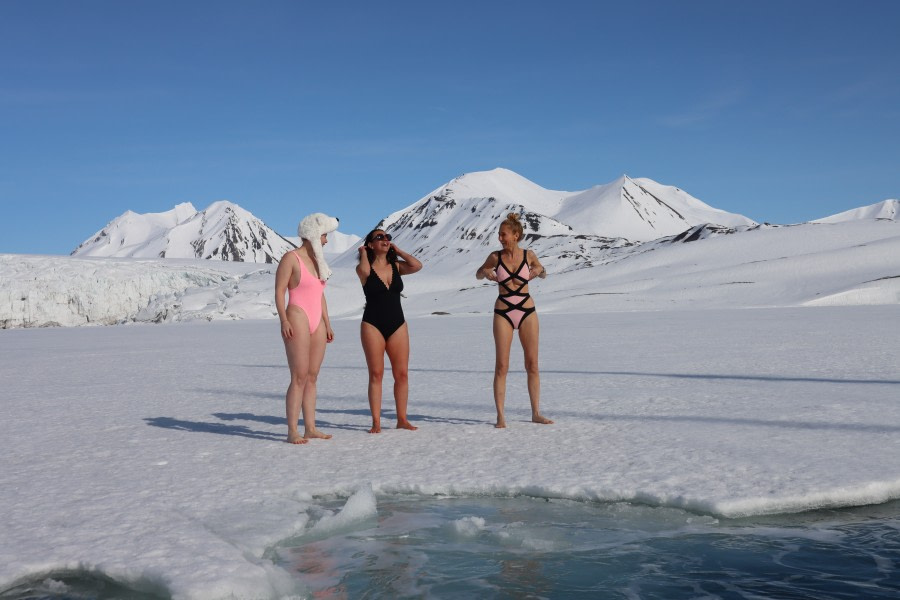Título
Spitsbergen - Noreste de Groenlandia, Vuelo y crucero
Inicio - Fin
Código del viaje
RVR15-26
Idioma
English
Barco
Embarque / desembarque
Longyearbyen - Constable Pynt
Noches / Días
19 noches
Resumen del viaje
El crucero por Spitsbergen y el noreste de Groenlandia navega por aguas repletas de paisajes impresionantes. La expedición atraviesa zonas que albergan focas, aves marinas, ballenas y osos polares.
Día 1: La ciudad más grande, la isla más grande
Aterrizará en Longyearbyen, el centro administrativo de Spitsbergen, la isla más grande del archipiélago de Svalbard. Disfrute paseando por esta antigua ciudad minera, cuya iglesia parroquial y el Museo de Svalbard constituyen atracciones fascinantes. Aunque el paisaje parece árido, se han registrado más de cien especies de plantas en él. A primera hora de la tarde, el barco zarpa de Isfjorden, donde es posible que vea el primer Rorcual aliblanco de su viaje. Por la noche, navega hacia Trygghamna, donde se pueden ver los restos de una estación ballenera inglesa del siglo XVII y una estación de caza pomor del siglo XVIII, que se pueden visitar a la mañana siguiente.
Día 2: Zorros, aves marinas y renos pastando
Desde Trygghamna se camina hasta Alkhornet, un gran acantilado donde las aves marinas buscan lugares para anidar. Debajo de los acantilados es habitual avistar zorros árticos, y si no hay demasiada nieve, también se pueden ver renos pastando entre la exuberante vegetación.
Día 3: De Fuglefjorden a Raudfjorden
Navegará hacia Fuglefjorden entre vistas de Svitjodbreen y Birgerbukta, ambos lugares de cría de págalos grandes y posibles puntos de avistamiento de osos polares. Raudfjorden, en la costa norte de Spitsbergen, es una zona ideal para contemplar los glaciares. También es el lugar favorito de las focas anilladas y barbudas, colonias de aves marinas y, ocasionalmente, osos polares y ballenas blancas.
Día 4 - 7: Hacia el este de Groenlandia
Es posible que, dependiendo de las condiciones, vea aparecer ante sus ojos el borde irregular del hielo marino del este de Groenlandia. Esté atento a las ballenas y las aves marinas migratorias.
Día 8: Restos de los tramperos
El objetivo es navegar hasta Foster Bay y realizar el primer desembarco en Myggbukta a última hora de la tarde o por la noche. Más allá de la antigua cabaña de cazadores (donde, en la primera mitad del siglo XX, los tramperos noruegos cazaban osos polares y zorros árticos), se extiende una extensa tundra poblada por bueyes almizcleros, con gansos flotando en los pequeños lagos.
Día 9: Brillantes icebergs, grandes montañas
Navegará por el fiordo Kaiser Franz Joseph, disfrutando de sus imponentes montañas y sus brillantes icebergs interiores. Por la tarde llegará a Teufelsschloss, una montaña prominente que forma parte del Supergrupo Eleonora Bay: roca sedimentaria creada hace entre 950 y 610 millones de años a una profundidad de 16 km (10 millas). Esta geología única, de color rojo óxido y múltiples capas, define el paisaje de los próximos días.
Día 10: El Ártico esencial
Al desembarcar en Blomsterbugten, tendrá muchas posibilidades de avistar liebres árticas y bueyes almizcleros. El lago Noah es el hogar de grandes colimbos grandes y sus crías, y aquí hay numerosas oportunidades para practicar senderismo. Por la tarde, se adentrará en el fiordo Kaiser Franz Joseph y encontrará refugio en Renbugten. Colosales icebergs y el paisaje ártico por excelencia le acompañarán mientras atraviesa este estrecho sistema de fiordos.
Día 11: Hacia el Estrecho Antarctic
Hoy el objetivo es desembarcar en Renbugten en busca de bueyes almizcleros y liebres árticas. Alrededor del mediodía, se dirigirá hacia el este, al estrecho Antarctic Sound, disfrutando de las vistas de las antiguas rocas sedimentarias. Debería llegar a la isla María antes del anochecer.
Día 12: Encuentro con Menandro
Te adentras en el fiordo Kong Oscars para intentar aterrizar cerca de Menander Øer, un lugar con interesantes oportunidades para practicar senderismo.
Día 13: Colores del otoño ártico
Continuando hacia el este, aterrizará en Antarctic Havn. Pasará la tarde en este extenso valle, donde podrá ver grupos de bueyes almizcleros. En esta época del año, la escasa vegetación se tiñe de un color dorado. Su guía podrá contarle la intrigante historia geopolítica que tuvo lugar aquí a principios de la década de 1930 entre Noruega y Dinamarca.
Día 14: Navegando hacia Scoresby Sund
Tras pasar el día en el mar, se adentra en el sistema de fiordos más grande del mundo: Scoresby Sund.
Día 15: Barrio inuit de antaño
Hoy llegará a Scoresby Sund, navegando a lo largo de la costa glaciar Volquart Boons Kyst. También podrá disfrutar de un crucero en Zodiac por uno de los frentes glaciares, junto con una visita a las columnas de basalto y las formaciones de hielo de Vikingebugt. El objetivo de la tarde es visitar la isla de Danmark, donde se encuentran los restos de un asentamiento inuit abandonado hace unos 200 años. Los círculos de piedras indican las casas de verano, mientras que las casas de invierno se pueden ver más cerca de un pequeño cabo. Los yacimientos están bien conservados, con entradas fácilmente identificables, almacenes de carne a prueba de osos y cementerios. Durante la tarde, navegará por el lado este de Milne Land entre una serie de icebergs dispersos.
Día 16: Enormes icebergs cerca de Sydkap
Aterrizará cerca de Sydkap, donde a menudo se ven liebres árticas, y durante el almuerzo podrá vislumbrar la entrada al fiordo Nordvestfjord, en Scoresby Land. Aquí encontrará icebergs colosales, algunos de más de 100 metros de altura (328 pies) y más de un kilómetro de longitud (0,6 millas). La mayoría de estos icebergs están encallados, ya que el fiordo solo tiene unos 400 metros de profundidad (1312 pies).
Día 17: La tundra de la Tierra de Jameson
En la costa occidental de Jameson Land se extiende una vasta tundra donde pastan bueyes almizcleros. Intentaremos desembarcar en una de estas zonas, como Tyskit Nunat, recordando los esfuerzos de Alfred Wegener por cruzar Vandreblokken. También es posible que visitemos Kap Hooker o una preciosa laguna al oeste de Kap Stewart.
Día 18: Asentamiento en Scoresby Sund
La parada de hoy es Ittoqqortoormiit, el asentamiento más grande de Scoresby Sund, con unos quinientos habitantes. En la oficina de correos se pueden comprar sellos para las postales o simplemente pasear para ver los perros de trineo y las pieles secas de focas y bueyes almizcleros.
Día 19: Las excursiones de Hurry Inlet
Por la mañana, harás una parada en la costa sur de Jameson Land, en una laguna cerca de Kap Stewart. Aquí se reúnen las aves zancudas y los gansos para su migración otoñal, y los bueyes almizcleros y los lemmings de cuello blanco sobreviven gracias a la escasa vegetación. Más adentro, en Hurry Inlet, podrás dar un paseo cerca de la cabecera del fiordo, así como por uno de los ríos que desembocan aquí. Aquí tendrá la oportunidad de subir a la montaña de J.P. Koch Fjeld, cerca de Hareelv. En esta extraordinaria zona, los científicos encontraron fósiles que relacionaban a los peces y los anfibios en el período Cretácico inferior. Pasará la noche fondeado frente a Constable Pynt.
Día 20: Última llamada en Constable Pynt
Tomamos el avión chárter desde Constable Pynt a Keflavik llevándonos recuerdos para toda la vida.
Los destacados que tal vez experimente
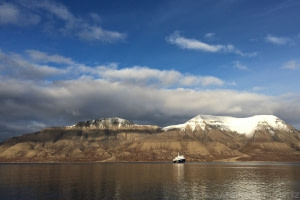
Visite los restos de una antigua industria ballenera y explore a pie esta bahía protegida
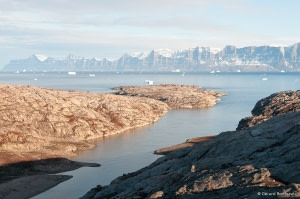
La isla clave del mayor fiordo de la Tierra
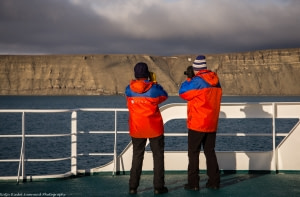
Península situada al este de Groenlandia, la Tierra de Jameson es conocida por sus sorprendentes formaciones geológicas
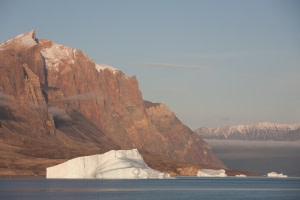
Este gran sistema de fiordos de Groenlandia Oriental se encuentra entre los cabos Mackenzie y Franklin
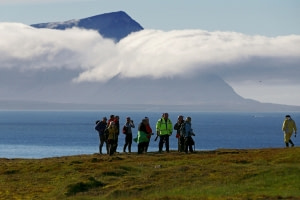
Este imponente pico vigila la entrada de Isfjorden y alberga miles de parejas de aves marinas
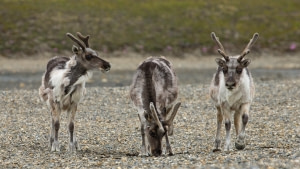
Salvados del borde de la extinción gracias a programas de recuperación, estos pequeños renos tienen una tasa de natalidad muy variable
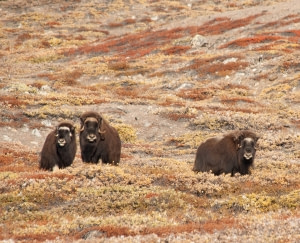
Entre los pocos animales con pezuñas que sobrevivieron a la última glaciación, estas criaturas parecidas a las cabras tienen una capa de pelo que es una de las fibras naturales más cálidas del mundo
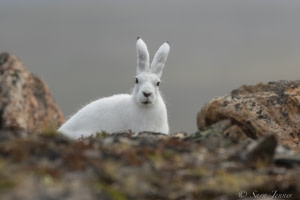
Pueden correr como el viento, ver todo lo que les rodea sin girar la cabeza y, a veces, comer animales en lugar de hojas, todo ello con este aspecto tan mono
Lo que dicen nuestros viajeros
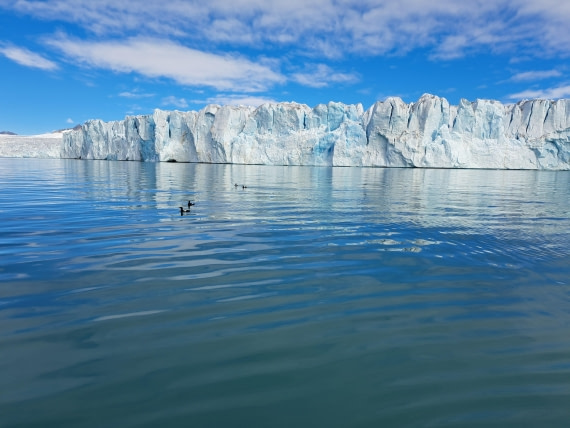
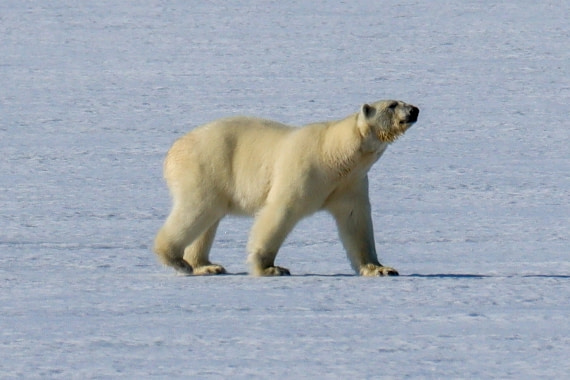



We've been waiting since 2020 to do this expedition and almost didn't make this one because of medical issues. I want to take special note of the Service Manager, Alfredo who went above and beyond in making us feel welcome aboard. Also kudos to the chef Khabir for his excellent variety of well prepared meals. Thanks also Captain Joachim for his safe guiding in these pristine waters. Thanks again for a special memory. Bill and Carla Francis
El Rembrandt van Rijn
Nuestro velero de 3 mástiles 'Rembrandt van Rijn' es muy adecuado para el crucero de expedición entre los fiordos de Groenlandia y Svalbard.
Información completa del buque »Cabinas & Precios
Triple Privada con Ojo de Buey
- 1 ojo de buey
- 1 litera superior / inferior + 1 litera superior
- Ducha y baño privado
- Amplio espacio de almacenamiento
Cabina completa
28500 USD
Precio por la cabaña completa, totalmente ocupada.
Camarote compartido
9500 USD
Comparta su camarote con otros para obtener el mejor precio.
Doble privada interior
- 1 Litera superior / inferior
- Ducha y baño privado
- Amplio espacio de almacenamiento
Cabina completa
20500 USD
Precio por la cabaña completa, totalmente ocupada.
Cabina individual
17425 USD
Precio de la cabina completa ocupada por 1 persona (1.7 veces la tarifa compartida).
Camarote compartido
10250 USD
Comparta su camarote con otros para obtener el mejor precio.
Doble Privada con Ojo de Buey
- 1 Ojo de Buey
- 1 Litera superior / inferior
- Ducha y baño privado
- Amplio espacio de almacenamiento
Cabina completa
23700 USD
Precio por la cabaña completa, totalmente ocupada.
Cabina individual
20145 USD
Precio de la cabina completa ocupada por 1 persona (1.7 veces la tarifa compartida).
Camarote compartido
11850 USD
Comparta su camarote con otros para obtener el mejor precio.
